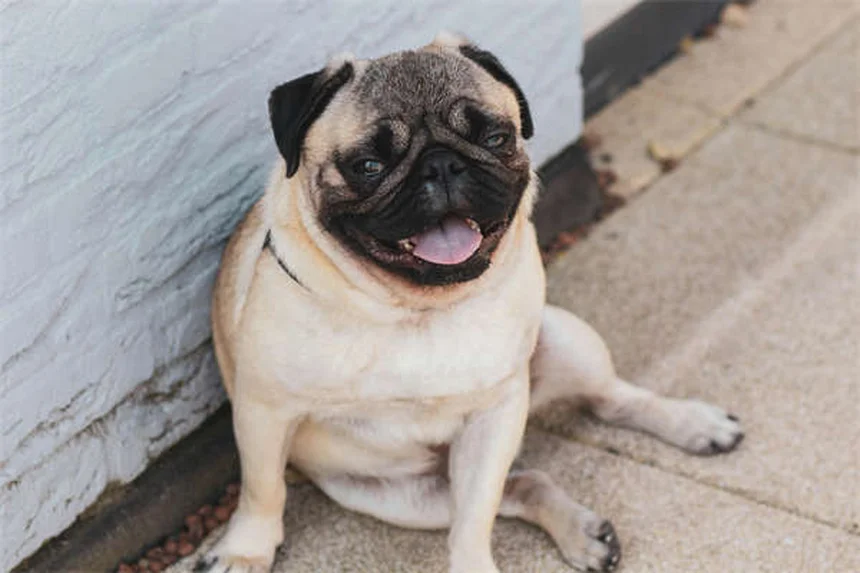What vaccines does your kitten need? The answer is simple: all kittens require core vaccinations like FVRCP and rabies, with FeLV highly recommended based on lifestyle. As a vet with 15 years experience, I can't stress enough how these shots protect your furry friend from deadly diseases.
Here's the deal - mama cat's antibodies only offer temporary protection and can actually interfere with vaccines. That's why we start the kitten vaccination schedule at 6-8 weeks, with boosters every 3-4 weeks until 16-20 weeks. This staggered approach ensures your kitten builds strong immunity as maternal antibodies fade. Trust me, following this schedule is the best gift you can give your new family member!
E.g. :How Many Kittens Do Cats Have? Average Litter Size Explained
- 1、Why Vaccinate Your Kitten? Let's Talk Immunity!
- 2、Core vs. Non-Core Vaccines: What's the Difference?
- 3、The Complete Kitten Vaccination Schedule
- 4、What About the Costs? Let's Break It Down
- 5、Possible Side Effects: What to Watch For
- 6、Your Kitten's Health is Worth It!
- 7、Beyond the Basics: Understanding Your Kitten's Immune System
- 8、Special Considerations for Unique Kittens
- 9、Vaccine Myths Debunked
- 10、Making Vaccination Day a Breeze
- 11、The Future of Feline Vaccination
- 12、FAQs
Why Vaccinate Your Kitten? Let's Talk Immunity!
Mom's Milk Isn't Enough Protection
You know how superheroes pass down their powers? Well, mama cats do something similar - they share antibodies through their milk. These antibodies are like tiny bodyguards, offering some protection against diseases. But here's the catch - they can actually interfere with vaccines!
That's why we wait until kittens are 6-8 weeks old to start vaccinations. We give them boosters every 3-4 weeks until they're 16-20 weeks old. Think of it like building a fortress - we're adding layers of protection until their immune system is strong enough to stand on its own. After the initial series, they'll need a booster one year later to keep that protection going strong.
Core vs. Non-Core Vaccines: What's the Difference?
The Must-Have Vaccines
Core vaccines are like the seatbelts of cat healthcare - every kitten needs them, no exceptions! They protect against the most common and dangerous diseases out there. The big ones are:
- FVRCP (the triple threat vaccine)
- Rabies (not just for dogs!)
Did you know that in some states, rabies vaccines are required by law? That's how serious this disease is - it can affect cats, dogs, and even humans. One quick shot could save your kitten's life.
 Photos provided by pixabay
Photos provided by pixabay
The "Maybe" Vaccines
Non-core vaccines are more like umbrellas - you only need them if there's a chance of rain. Your vet will help decide if your kitten needs these based on their lifestyle. For example:
| Vaccine | Good For | When Needed |
|---|---|---|
| FeLV | Outdoor cats or multi-cat households | 8-12 weeks with booster |
| Bordetella | Cats who go to groomers or boarding | Based on exposure risk |
Here's a fun fact: indoor cats might not need all the non-core vaccines, but if your kitten is the adventurous type who loves exploring outside, these extra shots could be lifesavers!
The Complete Kitten Vaccination Schedule
First Round: 6-8 Weeks
This is when the vaccination journey begins! At this age, your kitten will get:
FVRCP - This combo vaccine protects against three nasty viruses. It's like getting three vaccines in one quick poke! Some vets prefer to start at 8 weeks to avoid over-vaccination.
Ever wonder why we give multiple doses? It's because kittens' immune systems are still developing. We're essentially giving their body "practice runs" at fighting these diseases without actually exposing them to the real threat.
Second Round: 10-12 Weeks
Time for booster shots! Your kitten will get:
FVRCP booster - This reinforces that first vaccine. Think of it like a reminder for their immune system.
FeLV (if recommended) - For kittens at risk of feline leukemia. Did you know this disease can be passed from mother to kitten? That's why testing before vaccination is so important.
 Photos provided by pixabay
Photos provided by pixabay
The "Maybe" Vaccines
Almost done! This visit includes:
FVRCP final dose - Completing the series gives your kitten full protection.
Rabies vaccine - In many places, this is required by law. And here's why: rabies is nearly 100% fatal once symptoms appear. One vaccine can prevent this tragedy.
What About the Costs? Let's Break It Down
Vaccine Prices
Each vaccine typically costs between $25-$50. But wait - there's more to consider:
Your kitten will need an initial exam ($40-$60 on average) to make sure they're healthy enough for vaccines. Follow-up visits might be cheaper if you see a technician instead of the vet.
Here's a pro tip: some clinics offer vaccine packages that can save you money in the long run. It's like buying in bulk - but for your kitten's health!
Is Pet Insurance Worth It?
Ever heard the saying "an ounce of prevention is worth a pound of cure"? That's where pet insurance comes in. Plans like CarePlus can help cover:
- Vaccine costs
- Unexpected illnesses
- Prescription medications
Think about it this way - would you rather pay a little each month or face a huge vet bill all at once? For many pet owners, insurance provides peace of mind.
Possible Side Effects: What to Watch For
 Photos provided by pixabay
Photos provided by pixabay
The "Maybe" Vaccines
Most kittens handle vaccines like champs, but some might experience:
- Tiredness (extra nap time!)
- Mild fever
- Soreness at the injection site
These usually go away in a day or two. You might notice your kitten sleeping more than usual - that's completely normal. Their body is busy building immunity!
When to Call the Vet
Serious reactions are rare, but it's good to know the warning signs:
Seek immediate care if you see:
- Facial swelling
- Hives
- Trouble breathing
Remember that time your friend had an allergic reaction to peanuts? Vaccine reactions can look similar. The good news is vets are prepared to handle these situations.
Your Kitten's Health is Worth It!
Making Vet Visits Less Stressful
Here's a secret: kittens who have positive early experiences at the vet tend to be calmer patients for life. Try these tips:
1. Bring treats - positive reinforcement works wonders!
2. Use a comfortable carrier - make it their safe space
3. Schedule visits when the clinic isn't too busy
Did you know some clinics even have "happy visits" where kittens just come to get treats and cuddles? It's like taking your kid to the ice cream shop - but for vaccines!
The Big Picture
Vaccinating your kitten is one of the most loving things you can do. You're not just protecting them - you're helping create herd immunity that keeps all cats safer.
Think about how far we've come - diseases that used to be death sentences for kittens are now preventable with simple vaccines. That's modern veterinary medicine at its best!
Beyond the Basics: Understanding Your Kitten's Immune System
How Vaccines Actually Work
Imagine your kitten's immune system as a security team. Vaccines are like training exercises where we show the security team pictures of the bad guys (pathogens) without actually letting the criminals in. This way, their body learns to recognize and fight off real threats when they encounter them.
Here's something fascinating - did you know some vaccines use modified live viruses while others use killed viruses? The modified live ones give stronger, longer-lasting immunity but might cause mild symptoms. Killed virus vaccines are safer but often need more boosters. Your vet chooses the right type based on your kitten's specific needs.
The Herd Immunity Effect
When we vaccinate our kittens, we're not just protecting them - we're helping protect the entire cat community! Herd immunity kicks in when about 70-90% of the population is vaccinated, making it harder for diseases to spread.
Think about it this way - if your vaccinated kitten meets an unvaccinated cat at the park, your little one is much less likely to catch anything or spread diseases. It's like having a force field around the whole neighborhood!
Special Considerations for Unique Kittens
Rescue Kittens and Strays
If you've adopted a rescue kitten, their vaccination needs might be different. Many shelters give initial vaccines, but timing is crucial. We often recommend:
| Situation | Special Consideration |
|---|---|
| Unknown vaccination history | Start the full series regardless of age |
| Previously sick kittens | May need delayed schedule |
| Malnourished kittens | Wait until better nutrition status |
I once worked with a tiny stray who was severely underweight. We waited until she gained some strength before vaccinating, and now she's a healthy, fully protected house cat!
Breed-Specific Needs
Did you know some cat breeds might need adjusted vaccination protocols? For example:
• Burmese cats sometimes have stronger reactions to vaccines
• Maine Coons might need different timing due to their larger size
• Sphynx cats often need extra protection since they lack fur
Always discuss your kitten's breed with your vet - they'll customize the perfect plan. After all, one size doesn't fit all when it comes to healthcare!
Vaccine Myths Debunked
"Natural Immunity is Better"
Some folks believe letting kittens get sick naturally builds better immunity. But here's the truth - natural infection often comes with serious risks like permanent damage or death.
Take panleukopenia (feline distemper) for example. Without vaccination, it has a 90% mortality rate in kittens. With vaccination? Nearly 100% protection. I'll take those odds any day!
"Vaccines Cause Autism in Cats"
Wait - does this sound familiar? This myth jumped from human medicine to pets, but here's the scoop: there's zero scientific evidence linking vaccines to autism in any species.
In fact, the original human study making this claim was completely debunked and retracted. Our feline friends don't even get autism the way humans do. So you can vaccinate without worrying about this one!
Making Vaccination Day a Breeze
Pre-Visit Prep
Want to make vaccine visits smoother? Try these pro tips:
1. Get your kitten comfortable with being handled - practice touching their paws, ears, and mouth
2. Take short car rides before the big day so they don't associate cars only with vet visits
3. Bring their favorite blanket or toy for comfort
I've seen kittens who were prepped this way walk into the clinic like they own the place! It makes the experience better for everyone involved.
Post-Vaccine Care
After the shots, your kitten might need some extra TLC. Here's what helps:
• Offer small, frequent meals - some kittens lose their appetite temporarily
• Keep them warm and comfortable - think cozy blankets and quiet spaces
• Monitor the injection site - slight swelling is normal but should improve quickly
Remember that time you felt a bit off after a flu shot? Kittens can feel similarly, so extra cuddles are usually appreciated!
The Future of Feline Vaccination
New Vaccine Technologies
The world of vaccines is constantly evolving! Scientists are working on:
Needle-free options like nasal sprays or edible vaccines
Longer-lasting formulas that might need fewer boosters
More combination vaccines to reduce the number of injections
Wouldn't it be amazing if one day we could protect kittens with just a tasty treat? The research looks promising!
Personalized Vaccine Plans
With advances in veterinary medicine, we're moving toward customized vaccination schedules based on:
• Your kitten's genetic profile
• Local disease risks
• Lifestyle factors
• Antibody titer testing
This means less guesswork and more precise protection. Your kitten might get exactly what they need - nothing more, nothing less. Now that's smart healthcare!
E.g. :Kitten Vaccination Schedule and Costs | PetMD
FAQs
Q: Why do kittens need multiple rounds of vaccines?
A: Great question! Kittens need multiple vaccine doses because of something we call "maternal antibody interference." Here's how it works: mama cat passes protective antibodies through her milk, which is awesome for newborn immunity but creates a problem for vaccines. These maternal antibodies can actually block the vaccine from working properly. We give boosters every 3-4 weeks until 16-20 weeks because we're essentially waiting for mom's antibodies to fade while gradually building kitten's own immunity. Think of it like training wheels - we're slowly helping their immune system learn to protect itself!
Q: What's the difference between core and non-core vaccines?
A: Core vaccines like FVRCP and rabies are must-haves for every kitten - no exceptions! They protect against diseases that are either super common or extremely dangerous. Non-core vaccines (like FeLV) are more like "lifestyle vaccines" - we recommend them based on your kitten's risk factors. For example, an indoor-only cat in a single-pet household might skip FeLV, while an adventurous outdoor explorer definitely needs it. Your vet will help make these decisions - that's why those check-up conversations are so important!
Q: Are kitten vaccines really necessary if my cat stays indoors?
A: Absolutely! Here's why even indoor cats need vaccines: first, rabies is required by law in most states - and for good reason. Second, you never know when your "indoor" cat might sneak out or encounter other animals (like bats that can carry rabies). Third, FVRCP protects against diseases that can live in the environment for years. I've seen too many heartbreaking cases where owners thought "indoor only" meant no vaccines needed - don't let your kitty become another statistic!
Q: What side effects should I watch for after kitten vaccinations?
A: Most kittens handle vaccines like champs, but here's what to watch for: mild reactions like sleepiness or slight fever are normal and should pass in 24-48 hours. More concerning signs include facial swelling, hives, or trouble breathing - these require immediate vet attention. Pro tip: schedule vaccines in the morning so you can monitor your kitten throughout the day. And remember - serious reactions are extremely rare, while the diseases we're preventing are much more common and dangerous!
Q: How much do kitten vaccines typically cost?
A: Budget about $25-$50 per vaccine, plus an exam fee ($40-$60) for the initial visit. Here's a money-saving secret: many clinics offer vaccine packages that bundle everything at a discount. Also consider pet insurance - plans like CarePlus can cover vaccines and save you money long-term. Think of it this way: the $150-$300 you'll spend on kitten vaccines is pennies compared to treating preventable diseases that can cost thousands. Your kitten's health is worth every penny!


